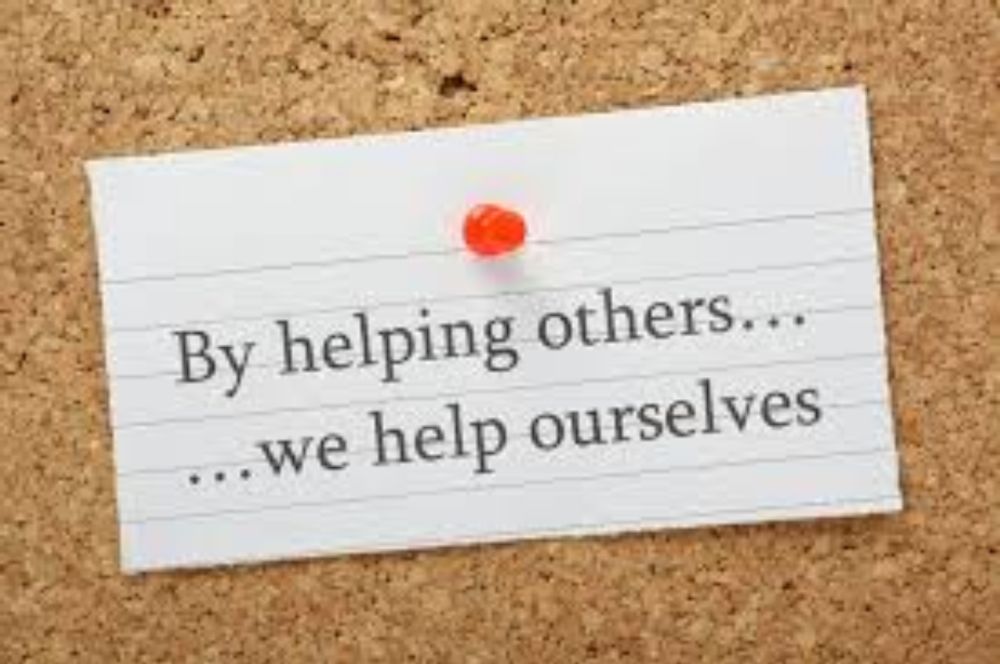

We may all perform simple deeds in our daily lives, such as holding doors, offering rides, giving directions, and offering your seat to someone who is more in need. These actions are frequently referred to as altruism. Altruism is characterised as "feelings and actions that demonstrate a desire to help other people and a lack of selfishness," as well as “the philosophy or practise of altruistic concern for or devotion to the benefit of others.”
Both of these meanings emphasise generosity and serving others. Altruists provide real and noticeable assistance to others, yet the advantages these Good Samaritans gain are sometimes ignored and underappreciated. In this essay, I'll discuss the advantages that giving people altruistic assistance can have for the giver. First of all, helping others without expecting anything in return is good for our bodies. According to studies, giving causes the production of feel-good hormones known as "helper's high" and activates the area of the brain that controls rewards; this is the basis for the well-known Salman Khan film “kick.”Volunteering is how altruism is most frequently understood, and numerous studies have demonstrated the remarkable health advantages and improved wellbeing that volunteers experience.

Altruists also get the rewards of "The Happiness Effect," feeling good about themselves right away and growing more confident and self-assured over time. People who are joyful and smiling are also perceived as more approachable, and as a result, they are more likely to form social connections. They are also more likely to gain from these social relationships in this era of networking and personal acquaintance.
Altruism has a lot of advantages besides just the positive psychological effects. Given the profoundly good effects it has on the volunteers, several universities award academic credit for voluntary work; some even make it a requirement. As a teacher, I've seen students undergo enormously positive changes as a result of participating in community service projects: for the most part, volunteering increased participants' appreciation for and gratitude as well as their positive self-esteem, willingness to accept and support others, and friendships. Numerous academic institutions reward volunteers who have demonstrated these principles and provide preference to applicants who have done so.
Working with others besides friends and family also helps one get a better understanding of who they are. Most of the time, we conform to the perceptions of ourselves that others have of us. Even though people change throughout time, we continue to adhere to a particular self-construct despite residing in the same environment. So, discovering one's authentic self in the here and now is essential, and volunteering can support this endeavour. "To find yourself, lose yourself in the service of others," advised Mahatma Gandhi.

Additionally, volunteering offers the chance to choose and grow in a job. Finding different volunteer activities is helpful while looking into professional options. Volunteering could help us get clarity because many of us are unsure of our job goals and the possibilities that are accessible to us. It is wise to use volunteer work or an internship at the organisation of your choosing to get to where you want to go since it provides the volunteers a chance to get to know the organisation well and determine whether it is what they are looking for. Additionally, it gives volunteers a platform to contribute the knowledge, attitude, and abilities needed in the business, transforming them into valuable workers.
Additionally, volunteering offers chances to gain practical skills applicable to other organisations. The majority of organisations welcome volunteers since they receive free assistance and expand their pool of resources for potential hires in the future. Despite the many alleged advantages of volunteering, it's crucial to keep your commitments reasonable. It is essential to extend a helping hand without feeling burdened. There are volunteer possibilities all around us. As the saying goes, "Charity begins at home." We can start by providing extra assistance to our family members, which offers equal physical and mental advantages to volunteering elsewhere.

In order to reaffirm my point, I will say that altruism has a huge impact on everyone. Helping others makes people happy, not just those who receive it, but also those who give it and the community as a whole. I implore each reader to help those in need in whatever way they can. Help has the same good impacts regardless of its form; it is not assessed in terms of money or time investment. Most significantly, we will all be living in a much better world if we help those around us, even in small ways.
